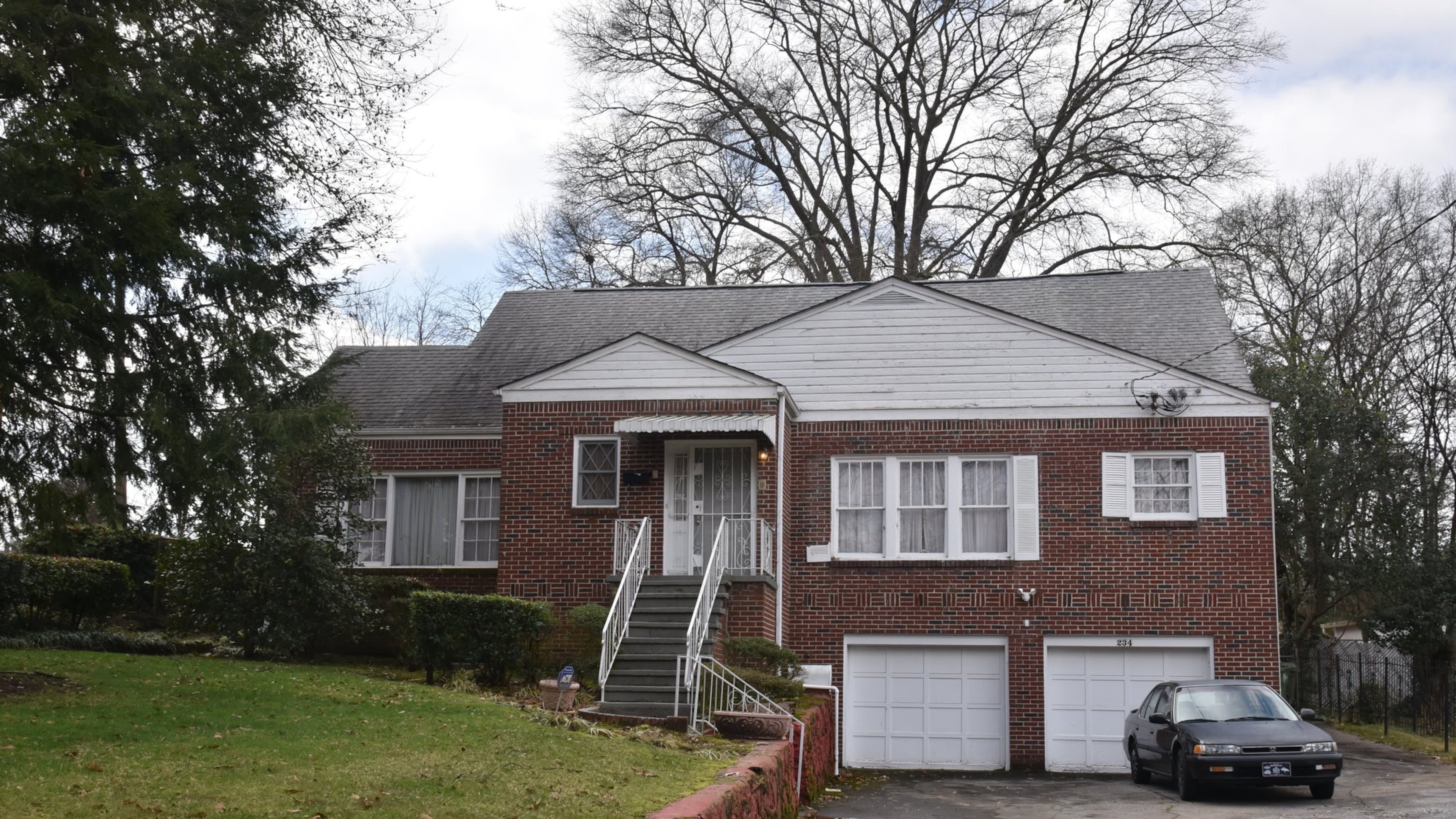Foundation buys King’s Vine City home, will be opened to public

Martin Luther King Jr. never wanted to own a home. So, when he moved his young family from a house on the old Johnson Avenue to a four-bedroom, 3.5-bath house in Vine City, he insisted on renting.
“My father really struggled with the whole notion of owning anything,” said Bernice King, the youngest daughter of Coretta and Martin Luther King Jr. “My mother convinced him.”
In 1966, a year after they moved in, the Kings purchased the home – although Bernice King said the deed was always in her mother’s name.
On Thursday, Bernice King announced that her family had sold the Sunset Avenue house in Vine City to the National Park Foundation for $400,000. The house will be turned over to the National Park Service as part of Martin Luther King Jr. National Historical Park, its doors eventually opening to visitors.
Last November, the King Center for Nonviolent Social Change Inc., which had owned King's birth home on Auburn Avenue for 45 years, sold it to the National Park Foundation for $1.9 million.
The sale of both properties, said Bernice King, frees her up to do more work in promoting non-violence on behalf of her parents, to tell the “holistic story around my father and his life and legacy,” and to preserve the homes through the support and power of the National Park Service.
“It wasn’t easy to release our home, but it was always the wish of my mother that the home she raised us in and we grew up in, be preserved for future generations,” she said.
RELATED
> Grant from Delta allows King historic site to reopen during government shutdown
> Coca-Cola pays for free admission to Atlanta's Civil Rights museum
The NPS already had a relationship with the family dating back to the 1980s, when the service started maintaining the upkeep and conducting tours of the birth home. That house is located near the historic Ebenezer Baptist Church where King co-pastored with his father.
“The National Park Service is the best at what they do,” said Will Shafroth, CEO of the National Park Foundation. “I think it will be priceless for our country to share this.”
It also could be a key step in revitalizing Vine City, a solid middle-class black neighborhood when King and his family moved there in 1965. In recent decades, the area has suffered from poverty and crime.
In exchange for $200 million in bonds for construction of the hulking new Mercedes-Benz Stadium, and commitments of hundreds of millions more in public dollars for stadium upkeep and improvements over the next three decades, the Atlanta Falcons and city officials have promised to improve the nearby communities, some of Atlanta's most blighted, including Vine City.
At-large city councilman Michael Julian Bond, the son of educator and civil rights leader Julian Bond, moved down the street from the Kings on Sunset Avenue in 1970.
“I think this is tremendous good news,” said Bond, who remembers playing with the King children. “A lot of quiet history was made in that home. A lot of speeches where written there. There were personal moments in that that shaped (King), what he was doing and his ministry. It all happened there.”
He said older people in the community are proud that the civil rights leader once called Vine City home. Others, perhaps newcomers or younger Atlantans, may not know of the history in their midst. Bond hopes they will learn more when the doors to the King family home open to the public.
While the birth home on Auburn Avenue has been the focus of King lore for decades, not much is known about what Bernice King calls the “Life Home.”
The brick structure on Sunset Avenue in the heart of Vine City is where she and her siblings grew up “like a normal family,” where meals were shared around the dining room table and where she occasionally jumped off the refrigerator into her father’s arms.
There was a basketball court and dogs in the backyard. Her brother Dexter used their mother’s closet that housed a deep freezer as a dark room when he took up photography.
One of her fondest memories, Bernice King said, was when her oldest sister Yolanda King moved out to go to college. That left Bernice King with her own room, one of the largest in the house.
The house on Sunset Avenue was also a gathering place for those who came to pay their respects after King was assassinated on April 4, 1968.
Four days later, Coretta Scott King sat on the edge of her bed wearing a black dress.
Robert Kennedy, who was running for president, sat that evening in a floral-upholstered recliner in the corner of the room, decorated with a painting of King and a portrait above the bed of a younger Coretta King smiling in a bare-shouldered gown, according to Rebecca Burns’ 2010 book, “Burial for a King.” Kennedy’s wife, Ethel, sat in a wooden dining chair comforting the widow.
The next morning, an American woman who knew the same kind of intimate pain, Jackie Kennedy, visited Coretta in her bedroom.
King lived in the house only three years before his death. Coretta Scott King stayed in the house until 2004, when she moved into a condo in Buckhead. Afterwards, the family still owned and maintained the house, also using it as an office, but no one lived in it.
With the federal government partially shut down, coupled with planning and restoration that includes roof repairs, Shafroth said it could take more than a year to get the house ready for tourists to step inside.
Tom Houck, who runs Civil Rights Tours Atlanta and features the home prominently on his tours, said he has been wanting the NPS to take over the house for years. He said for King, for whom he served as a driver, the Sunset Avenue house was a sanctuary and a place that he could remain connected.
“When he and Coretta were talking about moving, everybody else (from the black elite) was moving out to Collier Heights,” said Houck. “But Dr. King wanted to stay in town, he wanted to stay with the people. He and Coretta saw this house. It was a place of tranquility for him.”
On each of his tours, Houck gets out of his bus and has tourists stand in the King yard as he spins tales about the late civil rights leader.
“When they see the house, they are amazed that Dr. King lived such a modest life in a modest neighborhood,” Houck said. “The King that you saw, you would think that he was living in a gated palace. But this was a wonderful, warm house that he loved and Coretta loved too.”



